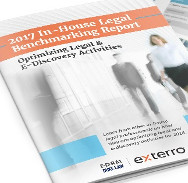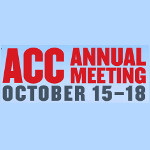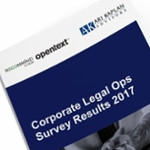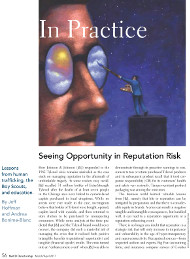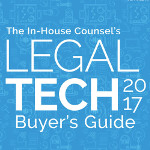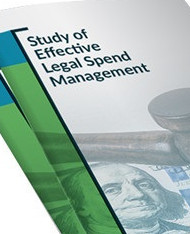Corporate legal departments say their most effective cost controls are enforcement of billing guidelines, reductions on invoice expenses, and working with law firms that pro-actively show their value. At the same time, many legal departments are not using fixed or flat fees, matter budgets, competitive bidding through requests for proposals (RFPs) or reallocation of work to smaller firms with lower rates.
That’s according to the Thomson Reuters Legal Tracker LDO Index, a new semiannual report based on anonymized data from over 1,100 legal departments. In addition, the report separately surveyed 155 legal departments on their use of cost controls.
Seventy-six percent of legal departments surveyed said that controlling outside counsel costs is a high priority, more than any other factor. This is not surprising, considering that 65 percent said the volume of legal matters they handle increased over the last six months, while only 30 percent said their total legal department budget increased.
Most Effective Cost Controls
When asked how effective various cost control methods are, nearly 80 percent of legal departments said moderate enforcement of billing guidelines and reduction of invoice expenses were effective or highly effective.
Alternative fee arrangement (AFA) use remains at low levels. While 83 percent of legal departments use AFAs, 55 percent use them for less than 20 percent of their legal spend. Seventeen percent do not use AFAs at all.
As far as other cost controls, most legal departments say they either do not use RFPs, matter budgets or limitations on the use of first-year associates, or do not find those cost control measures effective.
However, most legal departments say they prioritize working with firms that are proactive in showing their value, rather than simply reallocating work to smaller firms with lower rates.
Law Department Operations Roles Growing
Fifty-six percent of legal departments now have a dedicated legal operations function, up from 51 percent from the previous LDO Tracker survey conducted in April. Similarly, legal departments are now more likely to rank their level of sophistication in managing outside legal spend as “proactive” or “optimized,” while fewer legal departments say they are “reactive.”
| Sophistication in managing outside legal spending |
April 2017 |
September
2017 |
| Chaotic |
2% |
2% |
| Reactive |
21% |
14% |
| Proactive |
58% |
64% |
| Optimized |
12% |
15% |
| Predictive |
7% |
5% |
And these law department operations professionals are making these improvements despite continued budget pressure. The percentage of law departments who have increased their technology budgets has only risen to 22 percent compared to 18 percent in June.
“Efficiency is increasingly the watchword as corporate legal departments strive to streamline operations and manage challenging budgets,” said Mark Haddad, head of the Corporate segment for Thomson Reuters. “More legal departments are taking an operationally focused approach to optimize processes, rather than relying solely on blanket approaches such as fixed fees or matter budgets. This is helping legal departments more effectively manage their outside counsel spend. And this approach will benefit those firms that adopt a proactive strategy in delivering and demonstrating their value.”
See the full report of the Thomson Reuters Legal Tracker LDO Index.
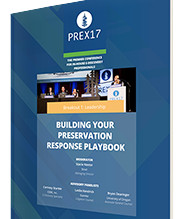 Zapproved has published “Building Your Preservation Responsive Playbook,” illustrating ways to adopt, monitor and document a preservation process that is litigation-ready.
Zapproved has published “Building Your Preservation Responsive Playbook,” illustrating ways to adopt, monitor and document a preservation process that is litigation-ready.